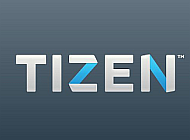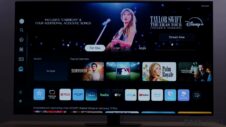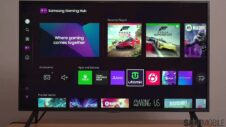Ever since Tizen was announced as being under development by Samsung (along with Intel and a slew of other partners), we have been waiting for that moment when the Korean manufacturer would launch the first Tizen-powered handset in the market and begin offering an alternative to its Android-based smartphones and tablets. However, numerous delays have resulted in the launch of the first Tizen phone getting postponed many times in the last couple of years, and Samsung has now revealed that the launch of the Samsung Z, the first officially announced Tizen handset, has been delayed in one of its main target markets, Russia, as the company hopes to build a stronger app ecosystem before offering the device to consumers.
Now, that might seem like the most sensible move to make – apps are the most important aspect of a smartphone these days, and the lack of a good app ecosystem has meant that newer operating systems like BlackBerry 10 and Sailfish are failing to pull consumers away from the more established Android and iOS. However, I’m not so sure it’s the right move.
See, the problem any new mobile OS faces is its lack of a solid app ecosystem, especially the lack of bigger names like Instagram, or Temple Run. However, unless you actually launch devices running your new OS in the market and people actually buy them, developers will have no incentive to focus their efforts on said new OS.
Samsung has courted developers to make apps for Tizen by offering them many incentives (cash prizes and the like), and is seemingly wanting to continue doing that before making a Tizen phone available in the market. However, at the end of the day, no matter how many incentives you may offer to developers, they will always go back to spending resources on established players. Samsung might be a huge force in the smartphone market, but even with all its financial might, it cannot keep developers interested in making apps for Tizen when no one is able to buy a device that actually runs the OS.
Basically, launching Tizen, or any new OS, is a double-edged sword – asking consumers to buy an OS in its early stages without a good number of solid apps is almost an evil thing to do, but delaying the launch of the OS and focusing on improving the ecosystem without any available devices is even worse. Samsung needs to launch a Tizen phone and make it available for purchase as soon as possible, or all the resources spent trying to get those developers writing apps for the OS would have been for naught, and I'm not sure that's something even a huge company like Samsung can afford.







